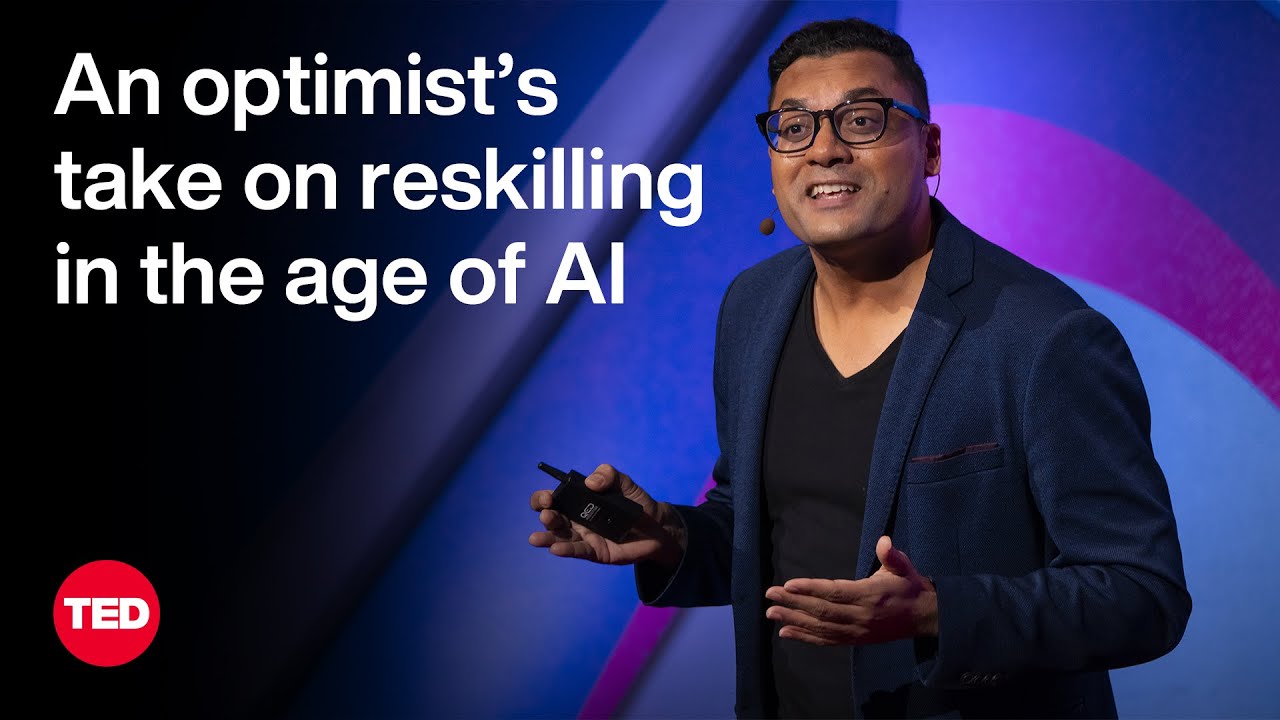The speaker discusses the impact of AI on the workforce, emphasizing the need for reskilling due to the rapid obsolescence of skills. By highlighting successful initiatives in Singapore and innovative approaches by companies like Ikea, the speaker advocates for a positive and collaborative approach to reskilling, focusing on both technical skills and mindset development to help individuals thrive in the evolving job market.
The speaker discusses the impact of AI and technology on the workforce, highlighting that one in every three workers globally will see their jobs significantly impacted in this decade. Companies are faced with the challenge of reskilling their employees, as the half-life of skills means that skills become redundant at a rapid pace. The solution lies in reskilling millions of people every year to transition into new occupations. This is a complex societal challenge that requires collaboration between governments, companies, and individuals. The speaker emphasizes the need to replace fear and skepticism with curiosity and optimism to navigate this changing landscape.
The speaker shares his experience working with the Singapore government on a digital reskilling program, showcasing how the country has embraced reskilling as a way to grow its people and economy. Through initiatives like skills ambassadors at shopping malls and gamified interactive kiosks for adult skill building, Singapore has taken a proactive and positive approach to reskilling. The success of programs like “Rise,” which reskilled thousands of individuals into new roles, demonstrates the effectiveness of such initiatives in helping people transition to new careers.
The speaker highlights the importance of not just building technical skills but also focusing on mindset and confidence when reskilling individuals. Skills such as first principles problem solving and practical application of digital skills through real projects were key components of their program. By providing opportunities for mature learners to showcase their skills in hackathons and real-world projects, the speaker’s program helped over 80% of learners secure new jobs, including those who had been out of formal education for over 20 years.
Government support, such as creating national job databases and incentivizing companies to hire reskilled talent, plays a crucial role in the success of reskilling programs. Companies like Ikea have also taken innovative approaches to reskilling, such as transitioning call center employees into interior design consultants. Beyond governments and companies, the speaker emphasizes the importance of individual initiative in embracing lifelong learning and reskilling. By investing in their own skills and modeling this behavior to the next generation, individuals can adapt to the evolving job market with curiosity and optimism.
In conclusion, the speaker advocates for embracing the reskilling revolution with a positive mindset, recognizing that job evolution due to technology is the new reality. By approaching reskilling with curiosity and optimism, individuals can navigate the changing job landscape and continuously build their skills. The examples shared from Singapore, Ikea, and other countries demonstrate that with collaborative efforts from governments, companies, and individuals, reskilling can lead to new opportunities, economic growth, and personal fulfillment in the age of AI.
